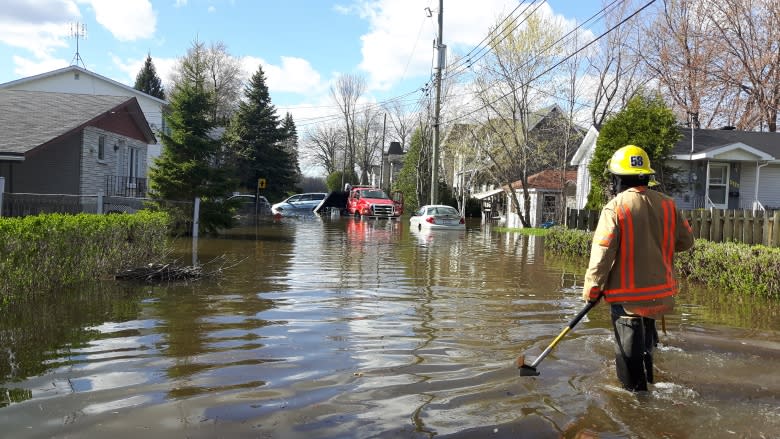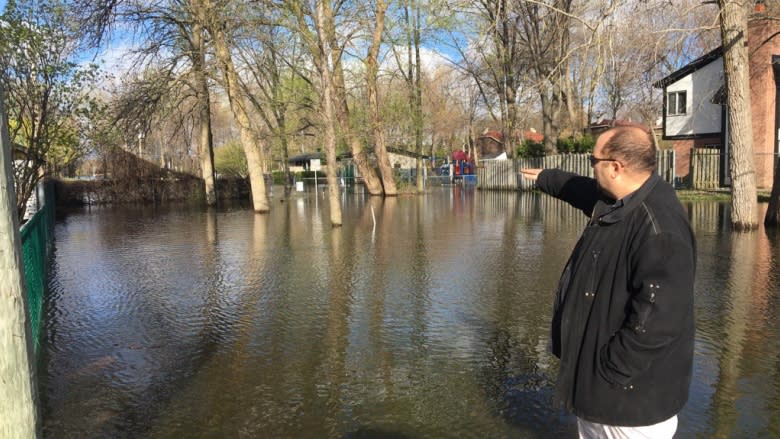West Island residents weigh in on government response to last spring's devastating floods
Residents affected by major flooding in and around Montreal last spring got a chance to question city and provincial officials Tuesday evening, at a public meeting to review how authorities handled last spring's devastating floods.
The city's public security committee hosted an information session and public question-and-answer period at the Pierrefonds Cultural Centre, which lasted over two-and-a-half hours.
Public Security Ministry officials were also there to take questions.
The chair of the municipal committee, Coun. Alex Norris, said the city wanted to hear residents' concerns and have greater public accountability.
"That's why we've come to where the people are, to hear their concerns and to try to see how we can do a better job at handling a similar situation next time around," Norris said before the meeting began.
Pierrefonds-Roxboro was one of the places in the province hardest hit by the flooding, which affected 286 municipalities and forced more than 4,000 people from their homes.
Nearly three dozen residents signed up to ask questions during the meeting. Some voiced their frustration about the delays they still face to rebuild their lives after the floods.
Louise Bradette, the city's director of civil protection, presented the findings of the report published last December, which details the actions the city took to deal with the flooding and what it learned from what happened.
Among the recommendations, the report said the city and its partners should make sure flood risk maps are up to date and promote information sharing between emergency responders.
"Concepts of risk and resilience should be an integral part of the planning process to mitigate the impact of adverse weather," the report said.
Residents speak out
Tom Schwalb, a Pierrefonds resident, said his "whole life is upside down" since the flooding.
"My basement is still a mess. I don't have enough funds to really do very much, and I'm doing most of it myself so it's taking a long time," he told CBC News before the meeting.
Schwalb said he didn't see anything in the city's post-flooding report that would help him deal with a future disaster.
"We're going to map out the flood zones, but what does that give us? I'm not sure," he said.
Earlier this month, Quebec ordered every municipality in the province to come up with an emergency plan to deal with natural disasters.
So far, two-thirds of Quebec municipalities did not have an updated preparedness plan.
Itsik Romano, who lives on Maçons Street in Pierrefonds, another street heavily affected by last year's flooding, said Tuesday he welcomed the city's initiative to be better prepared in case of future incidents.
"Unfortunately, it takes kind of a disaster situation to make changes," he told CBC.
"I'm very hopeful that no flood is going to happen this spring, so all the people from last spring will be able to be helped."




